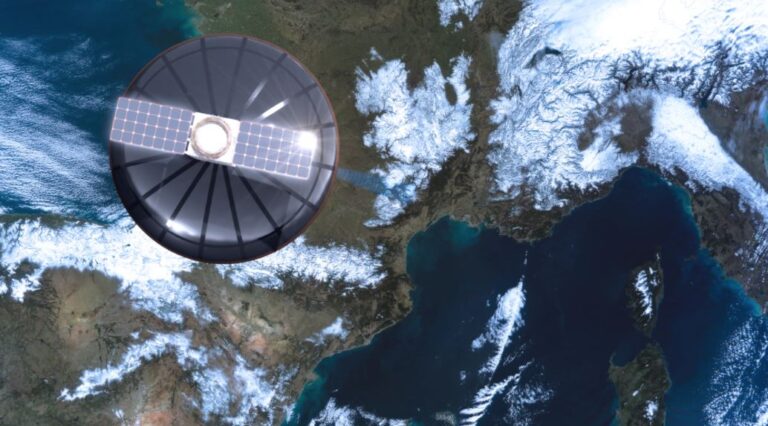The Air Force Life Cycle Management Center (ALFCMC) weather systems branch at Hanscom Air Force Base has awarded Tomorrow.io with a contract to build on a weather data constellation in orbit.
The US$10.2m contract will see Tomorrow.io manufacture, build and deliver two additional microwave satellites to orbit, where they will provide a cumulative 10 months of data across all on-orbit microwave sounder satellites.
Funded through the Accelerate the Procurement and Fielding of Innovative Technologies program, the contract supports the development and launch of the two microwave sounder satellites. The final constellation will consist of 18 microwave sounders and 12 microwave radar satellites.
“The two additional microwave sounder satellites will increase revisit rates, or the time between observations of the same point on the Earth,” said Lauren Craft Tarter, meteorology subject matter expert for the Commercial Weather Data Pilot (CWDP). “Tomorrow.io’s future constellation of 30 low earth orbit small satellites will have hourly revisit rates.”
Traditionally, the Department of Defense (DOD) has collected its own weather data. However, this contract allows a commercial entity to collect the data, which the DOD can then purchase as a service – an approach that could be more efficient according to Major Coy Fischer, CWDP program manager.
“We are now seeing commercial efforts in space that are as good as and, in some cases, better than the public sector,” Fischer added. “With this construct, we would just pay for the service, and they (commercial entities) assume the risk of operating and maintaining the constellation.”
The CWDP initiative aims to compare commercial data with current DOD capabilities, validating the theoretical baseline for revisit rates and overall data accuracy and quality. The cost benefits of utilizing commercial companies for space domain access were quickly recognized, leading to a significant increase in such activities over recent years.
“Congress tasked the government to look at commercial sources of weather data,” Fischer continued. “Along that vein, we sought out small businesses such as Tomorrow.io, who are employing innovative techniques and technologies often much quicker than we are able to maintain on the government side.”
This follows a similar contract awarded to Tomorrow.io in 2021, when Team Hanscom awarded US$19.3m to support a constellation of high-tech weather satellites capable of observing precipitation and storm structures from space.
“This contract is more data-focused while the last contract was more focused on finalizing and optimizing the design of these satellites,” Fischer explained. “They work hand-in-hand and have a similar focus.”



